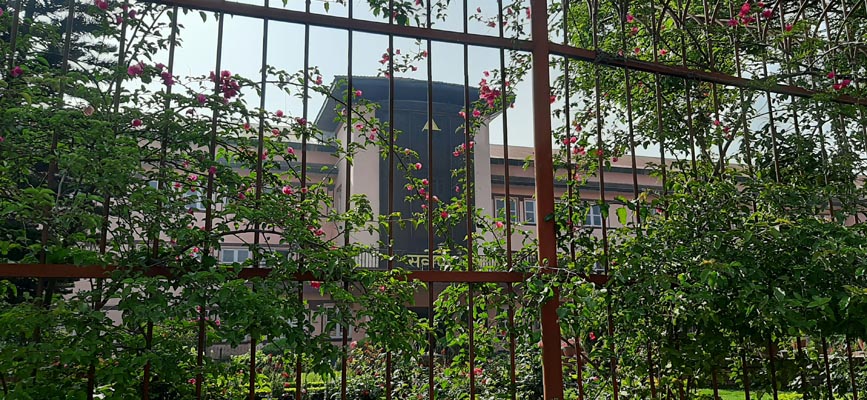Joshi’s case pending at apex court for six years
Kathmandu, June 6
Although the Supreme Court’s five year strategic plan states that major cases shall be adjudicated within two years, the case of Nepali Congress leader Govinda Raj Joshi remains undecided even after six years.
The Special Court had convicted Joshi in a corruption case on 24 June 2012, and he had filed an appeal at the SC on 1 February 2013 challenging his conviction.
A division bench of Justice Ishwar Prasad Khatiwada and Sapana Pradhan Malla heard Joshi’s case today. This was the 43rd times that the case was enlisted for final hearing.
In the past, the SC justices have rescued themselves from the case on 11 occasions. Only on five occasions including today, the bench passed orders, mainly to procure case files and decisions from other offices.
On seven occasions, Joshi’s case was rescheduled as the bench did not have enough time to conduct a hearing. On nine occasions, hearing in Joshi’s case was postponed as lawyers representing the case sought deferral of the hearing.
Advocate Om Prakash Aryal said as per the five-year strategic plan of the SC, such case had to be adjudicated within two years.
He said the SC employees did not appear to be mindful of listing the names of justices who could have reasons to rescue themselves of the case. “Court staff should clearly mention the names of the justices who can’t hear particular cases, but in this case this rule was not followed,” he said and added that failure of the Commission for the Investigation of Abuse of Authority in sending case files to the SC had led to the delay in the adjudication of the case. “This is a kind of obstruction of justice,” he added.
Senior Advocate Surendra Kumar Mahto said as per section 16 (2) of Special Court Act, the Supreme Court has to adjudicate within three months of a case filed by a party, challenging the verdict of Special Court. But the rule has not been followed by the SC in this case.
The CIAA had filed a corruption case against Joshi in 2004, accusing him of amassing disproportionate asset, worth Rs 40 million.
The Special Court had on 26 July, 2012 convicted Joshi of corruption and imposed one and a half-year jail term and Rs 21.6 million fine.
In 2006, the Special Court had acquitted Joshi, citing lapse of statute of limitations, but it heard the case again after the Supreme Court ordered it to reopen the case.
The CIAA had filed a case against Joshi on 12 January, 2004, accusing him of amassing disproportionate asses of Rs 30.93 million between 1991 and 2001, when he held various ministerial portfolios, mostly in the cabinet led by Nepali Congress.
Meanwhile, a division bench of justice Ishwar Prasad Khatiwada and Sapana Pradhan Malla which heard Joshi’s case today, issued a show cause notice to the CIAA secretary and other concerned officials for not submitting the case files to the court even after repeated reminders were served to them, in the past five years.
The court observed that CIAA’s failure to produce case files led to delay in the adjudication of case and obstruction of justice, causing inconvenience to the parties of the case.
The apex court asked the CIAA secretary and other concerned officials of the anti-graft body to furnish reasons as to why an action should not be taken against them under contempt of court as provisioned in Section 17 and 34 (2) of the Administration Justice Act. The SC has asked the CIAA secretary and concerned officials to appear before it within 15 days to submit their written reply.






